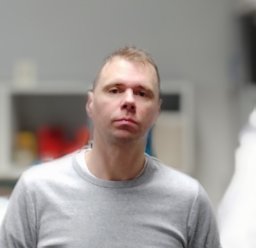NextGen Precision Health Neuroscience Seminar – April 8, 2024
NextGen Precision Health Neuroscience Seminar – April 8, 2024
CANCELED
The goal of the NextGen Precision Health Neuroscience Science Seminar is to highlight transdisciplinary precision research taking place in the field, provide opportunities for collaboration among researchers to build their own research efforts and promote clinical/researcher activity across the University of Missouri System and our partners.
For questions about this event, please reach out to Veronica Lemme at lemmev@health.missouri.edu.
“Stem cell based neurodevelopmental disease modeling platform for precise high-throughput screening”
Presented by: Pawel Lisowski, Ph.D., D.Sc., Researcher, Berlin Institute for Medical Systems Biology (BIMSB), Max-Delbrück-Center for Molecular Medicine (MDC) in the Helmholtz Association and Charité – University, Berlin
Date: April 8, 2024, 4-5 p.m.
Location: Roy Blunt NextGen Precision Health Building/Atkins Family Seminar Room
*Zoom option available
Register Here
Description
Current 3D human brain model systems offer the promise of improving phenotypic screening and drug discovery process, including gene therapy technology development, as they can recapitulate more and more faithfully in vivo conditions in health and disease. Nevertheless, significant challenges remain to deploying such complex systems in a high-throughput context. The challenges range from the sourcing of human tissues, the complexity of cell culture protocols, the robustness of assays and the miniaturization to analytical challenges. Dr. Lisowski will summarize his team’s efforts in using patient-derived and engineered-induced pluripotent stem cells to study neurodevelopmental diseases and how to tackle these challenges in some of the projects being developed.
Speaker Bio
Dr. Pawel Lisowski is a stem cell researcher at the Berlin Institute for Medical Systems Biology (BIMSB), Max- Delbrück-Center for Molecular Medicine (MDC) in the Helmholtz Association and Charité – Universitätsmedizin Berlin. After research stays at the National Institutes of Health (NIH) and Northwestern University, his unit develops a stem cell based disease modeling technological platform for high-content phenotypic screening, drug repurposing and post-mitotic neuron gene editing in rare diseases. The platform also serves as a support for undiagnosed neurodevelopmental diseases (UNDs) in a beyond clinical WES diagnostic process and phenotypes discovery, along with neurodevelopment. Lisowski participates in several European initiatives such as the European Joint Programme on Rare Diseases, the Gene Therapy of Rare Diseases and also was involved in the NIH Somatic Cell Gene Editing initiative. Recently, he has established a U.S.-German scientific network aimed at decoding newly discovered — by him — polyQ-related neurodevelopmental disease associated with the IRF2BPL gene.
Delbrück-Center for Molecular Medicine (MDC) in the Helmholtz Association and Charité – Universitätsmedizin Berlin. After research stays at the National Institutes of Health (NIH) and Northwestern University, his unit develops a stem cell based disease modeling technological platform for high-content phenotypic screening, drug repurposing and post-mitotic neuron gene editing in rare diseases. The platform also serves as a support for undiagnosed neurodevelopmental diseases (UNDs) in a beyond clinical WES diagnostic process and phenotypes discovery, along with neurodevelopment. Lisowski participates in several European initiatives such as the European Joint Programme on Rare Diseases, the Gene Therapy of Rare Diseases and also was involved in the NIH Somatic Cell Gene Editing initiative. Recently, he has established a U.S.-German scientific network aimed at decoding newly discovered — by him — polyQ-related neurodevelopmental disease associated with the IRF2BPL gene.